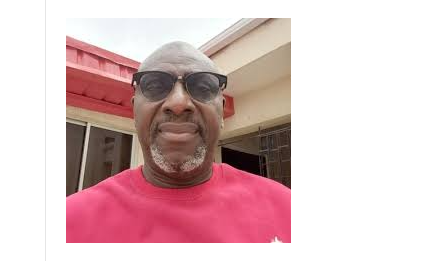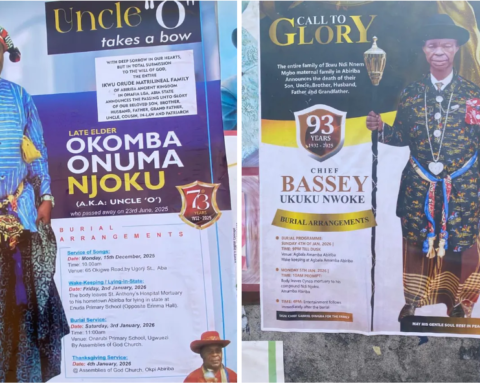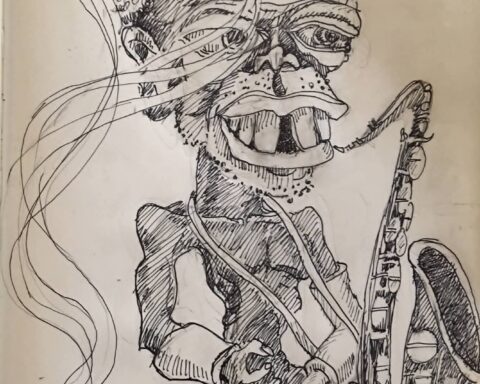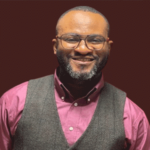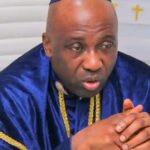The story of Lanre Arogundade is, in many ways, the story of Nigeria’s tumultuous journey through dictatorship, democracy, and the ever-present struggle for rights and freedoms. To trace his path is to uncover not just the making of an activist, but the layered history of a country where resistance often came at a heavy personal cost
Today, Arogundade is best known as the Executive Director of the International Press Centre (IPC), where he champions press freedom, defends journalists against harassment, and insists on accountability in a media space under constant pressure. Yet his public service did not begin in the newsroom. It began in the dust of protest marches, in student union meetings, and in the unyielding belief of a young man that collective action could stand against the might of the Nigerian state.
A First Taste of Dissent
Arogundade’s entry into activism came almost by accident. As a teenager in secondary school in the late 1970s, he joined a protest organized by teachers against the Ondo State Military Governor, Ita David Ikpeme. For most of his peers, the protest was an exciting interruption of routine school life. But for him, it was something more. It revealed the power of solidarity and the vulnerability of authority when nonfronted by organized dissent.
I realised then that the state was not invincible,” he would later reflect. “That a group of ordinary people-teachers, students-could come together and force power to listen.”
This awakening would stay with him. When he entered the University of Ife to study Psychology, activism was already more than a pastime; it was an identity. He quickly gravitated towards leftist student groups, where intellectual debates on Marxism, liberation, and resistance were daily bread. His radicalization deepened when he sought membership of the Alliance of Progressive Students (ALPS) through Owei Lakemfa where later Segun Sango, a prominent socialist thinker, further helped to cement his membership of the group that viewed campuses as laboratories for social change.
The Rise of a Student Leader
Through this network, Arogundade emerged as a formidable figure in student politics. He was elected Secretary General of the university’s Students’ Union-a role that tested his organizational ability and sharpened his oratory. It was from this base that he launched his campaign for the presidency of the National Association of Nigerian Students (NANS) in December 1983, at a time of national upheaval.
Nigeria was on the brink. The Second Republic under President Shehu Shagari was collapsing under economic mismanagement and allegations of corruption. By the end of that year, the military had once again seized power, ushering in the regime of Major-General Muhammadu Buhari.
It was in this fraught atmosphere that Arogundade was elected NANS president in 1984. His tenure would prove historic.
NANS vs. the Military
To lead NANS in the mid-1980s was to live in constant confrontation with power. The Buhari regime, followed by General Ibrahim Babangida’s government, ruled with a heavy hand-banning political organisations, detaining critics without trial, and curtailing press freedoms. Yet NANS, under Arogundade, emerged as one of the few institutions capable of openly challenging military rule.
The association mobilised students nationwide to resist hikes in tuition fees, poor funding of universities, and broader anti-people economic policies. Mass demonstrations shook campuses from Ibadan to Zaria. For a regime used to compliance, the defiance of students was both a nuisance and a threat.
What was remarkable was not just the scale of resistance but its impact. Faced with organised student protests, the military often conceded to NANS demands. It was an era when the voice of young people could not be ignored, and at its helm stood a president whose blend of radical idealism and strategic negotiation made him a formidable interlocutor.
Yet activism had consequences. Arogundade’s name soon appeared on the watchlist of the Department of State Security (DSS), branding him a person of interest for decades. For forty years, he lived under the shadow of surveillance-a constant reminder of the risks borne by those who chose to resist.
A Generation in the Trenches
Arogundade’s experiences were not isolated. His trajectory mirrored that of a generation of activists who cut their teeth in student movements and later became central figures in Nigeria’s pro-democracy struggles. From the late 1970s through the 1990s, campuses were crucibles of dissent, producing leaders who challenged military rule, often at great personal sacrifice.
Figures such as Olisa Agbakoba, Beko Ransome-Kuti, and Gani Fawehinmi were contemporaries in the broader pro-democracy movement, and Arogundade’s NANS presidency connected him to that wider struggle. The students’ cause was never only about education; it was about resisting authoritarianism and demanding a say in Nigeria’s future.
That link between campus politics and national resistance is a historical thread often overlooked today. For many in that era, student unionism was the university of activism, and Arogundade graduated with honours.
From Campus to Newsroom
If student politics was the training ground, journalism became the lifelong career. After leaving NANS, Arogundade joined the media, bringing with him the activist’s instinct for truth-telling and accountability. He rose through the ranks as a reporter and editor, eventually becoming a key figure in Nigeria’s press advocacy landscape
At the International Press Centre (IPC), where he now serves as Director-General, he has spent decades defending journalists against harassment, advocating for freedom of information, and pushing for professional standards in the media. His work is both local and global, linking Nigeria’s press struggles to Jonal debates about media freedom in authoritarian and transitional democracies.
The continuity is striking the same voice that once mobilised students against tuition hikes now defends reporters against censorship and digital surveillance. The battlefield has shifted, but the fight remains the same.
The Burden and the Redemption
Perhaps the most poignant chapter of Arogundade’s story came this year, when he was officially removed from the DSS watchlist after four decades. For him, it was less about personal vindication than about what it symbolized.
“To be watched for forty years simply because you spoke up for justice-this tells you something about the Nigerian state,” he remarked. Yet his delisting was also a quiet recognition that activism is not a crime and that dissent, however uncomfortable, is part of democracy.
Lessons for a New Generation
In an age where Nigerian youth express their frustrations through hashtags and online campaigns-#EndSARS being the most powerful recent example-Arogundade’s journey offers both parallels and lessons. The tools have changed, but the challenges remain: rutality, government repression, economic hardship, and the struggle for dignity.
For today’s activists, his story is a reminder that advocacy is neither glamorous nor without consequence. It demands persistence, organization, and sacrifice. Yet it also affirms that resistance, even against seemingly insurmountable power, can yield results.
A Lifetime of Advocacy
From his first protest as a secondary school boy in Ondo State, to leading NANS against military rule, to defending press freedom in democratic Nigeria, Lanre Arogundade’s life traces an unbroken line of advocacy.
It is a story of one man but also of a nation’s struggle: of how ordinary citizens, when organized, can challenge the mighty, of how democracy is built not in a day but in decades of sacrifice; and of how the call to justice, once heard, is rarely silenced.
Four decades on, Arogundade remains an activist at heart. His career may have taken him from campuses to newsrooms, but the mission has always been the same, to give voice to the voiceless, to hold power accountable, and to remind Nigeria that freedom is given-it is won.
